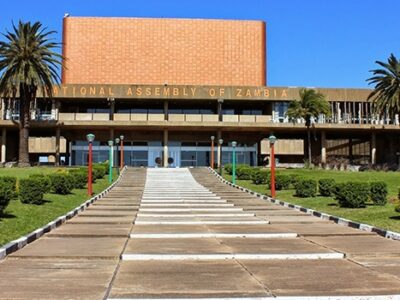Zambian players in the technology space are among the beneficiaries of the blockchain programme meant to empower entrepreneurs from six African countries.
These entrepreneurs are part of the 105 who have graduated from the programme being run by the Africa Blockchain Center (the ABC) The entrepreneurs are from six African countries including Kenya, Nigeria, Tanzania, Zambia, South Africa and Benin.
The ABC has therefore graduated 105 blockchain programmers in its first cohort of Blockchain Programming Training, one of the first formal blockchain training programs in Africa.
Africa Blockchain Center Chief Executive Officer, Jefferson Mkungusi, believed that Africa had untapped potential when it came to web3 development.
Mkungusi explained that the youth who had been trained would be able to build innovative solutions that would enable Africa to leapfrog to a new era.
He pointed out that the potential that blockchain had in solving some of the challenges that were facing Africa was massive.
“We aim to train 10,000 blockchain programmers, power 25,000 business leaders and executives on blockchain readiness, incubate 50 blockchain startups and launch robust solutions for the market in the next five years.
“The technology was conceptualized hardly 13 years ago and it has been under speculation for years with no established pipeline for blockchain talent in place. We see the sector’s rapid expansion and aim to become the sector partner when it comes to blockchain capacity,” Mkungusi said in a statement on Thursday.
The programme, which took six months, and was run by a network of global experts, was a practical based course that taught the learners the core fundamentals of blockchain technology and decentralised
systems.
The programme also took learners through the various blockchain programming protocols with a focus on Cardano, Algorand and Ethereum.
Read more: Zambia gets fourth mobile network, Zed Mobile https://www.zambiamonitor.com/zambia-gets-fourth-mobile-network-zed-mobile/
Key learning points from the training that the learners were exposed to includes but not limited to, Decentralisation in Information Systems, Principles of Decentralisation, History and operating Principles of Bitcoin, and Blockchain Technology Fundamental structures.
Other areas are Decentralisation as an approach in Information Systems, Introduction to Asset Tokenisation, Cryptography in decentralised systems, Application of decentralised approaches to system designs, Alternative digital currencies and tokenisation.












Comments